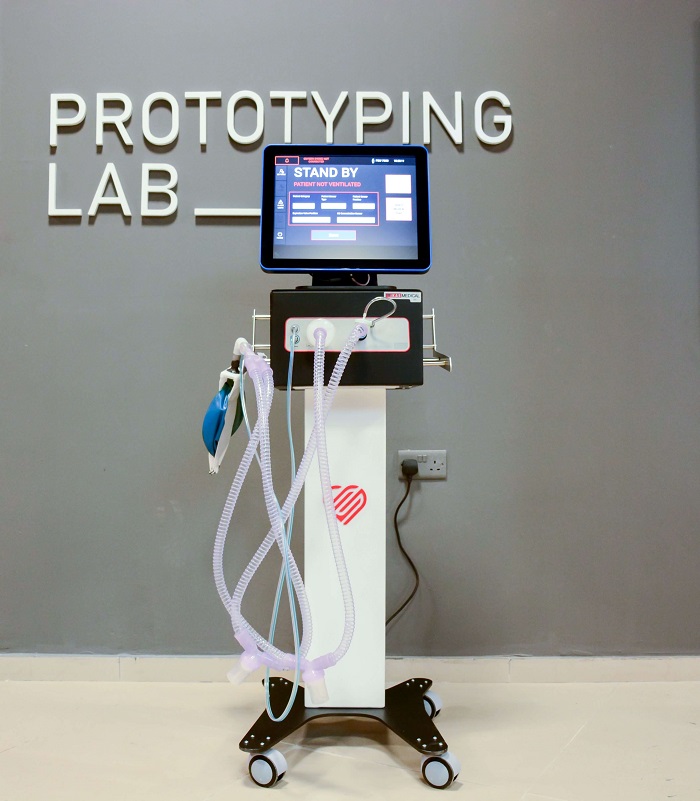
The respirator, of which software, hardware and design were completely made by Near East University, was made ready for use after a 6-month research and development process. In these days, when the second wave of the COVID-19 pandemic is encountered all over the world, the intensive care capacities of countries are vital to reduce the loss of lives due to the pandemic. Respirators stand out as the most important equipment in fighting against COVID-19 to keep patients in need of respiratory support alive.
The fully functional respirator developed by Near East University has been developed to be used in intensive care and emergencies of hospitals. Thus, initially including Cyprus and Turkey, it is aimed to increase the capacity of intensive care units' demands for such a vital equipment.
Prof. Dr. İrfan Suat Günsel: "Mass production of the respiratory device will begin before 2020 ends."
Emphasizing the importance of the number of respirators in the fight against COVID-19, which affects the whole world, Near East University Chairman of the Board of Trustees Prof. Dr. İrfan Suat Günsel said that the serial production of the respirator, which was developed by Near East University engineers and made ready for mass production, will begin before the end of 2020. Prof. Dr. Günsel said, "Near East University and Kyrenia University scientists, doctors of our university hospitals, Günsel engineers, our innovation teams, 3D Laboratory and our engineers continue to be at the forefront of the fight against the COVID-19 pandemic working intensively since the first days of the pandemic."
Ahmet Çağman: Respirator successfully passed simulation tests...
Stating that respiratory devices directly affect patient health and there is no room for error, Ahmet Çağman, Director of the Center for Innovation and Information Technologies of Near East University, emphasized that the respirator, which they made ready for mass production, passed all the tests performed under doctor control in the simulated environment and proved its success. Saying that they use the latest technology in the breathing apparatus they developed, Çağman stated that the respiratory devices currently used in hospitals have many mechanical parts, especially bellows. The intensive care respirator, developed by the Near East University Innovation Center, can be digitally controlled with a software and has no bellows and has fewer mechanical parts. The respirator works silently with high-pressure efficiency, high flow capacity and low power consumption with a specially designed engine consisting of a new generation turbine and special control software. Since it consists of less moving parts compared to the previous generation ventilators, the risk of failure is lower and the maintenance cost is lower.
